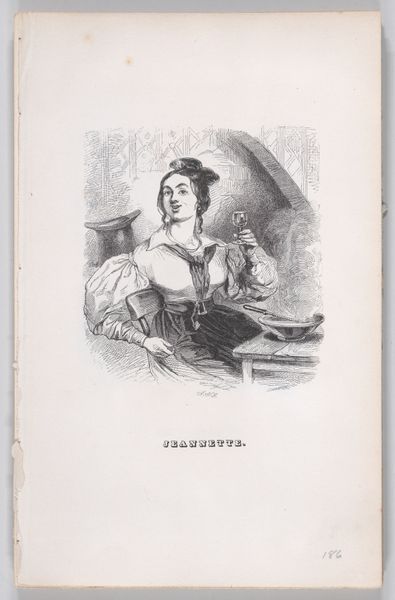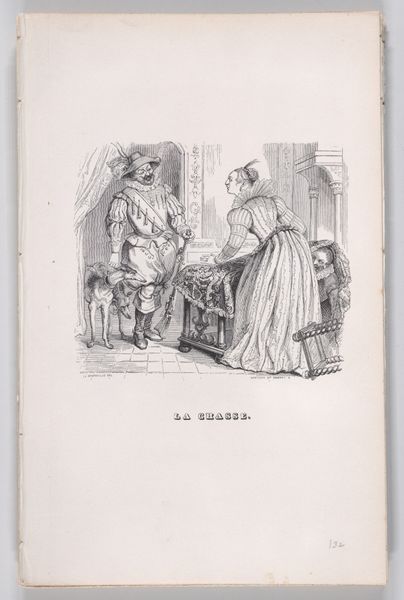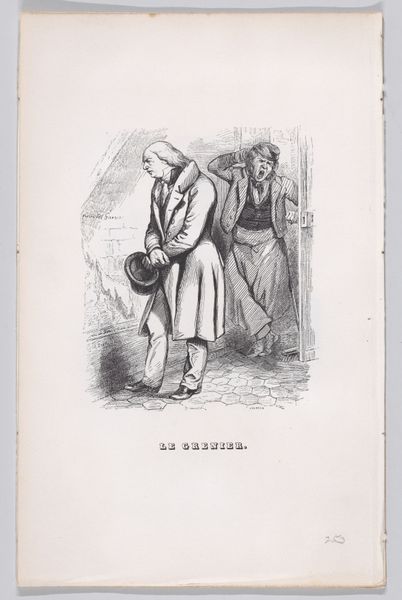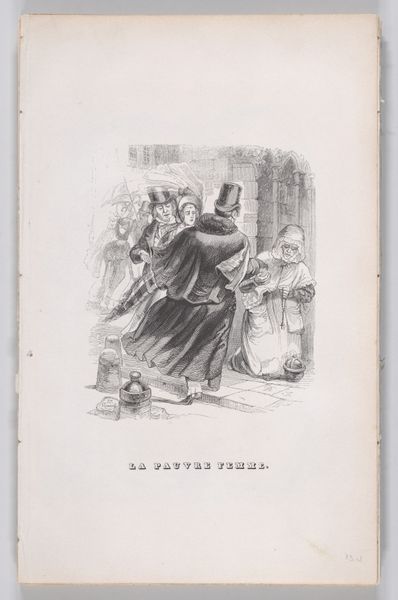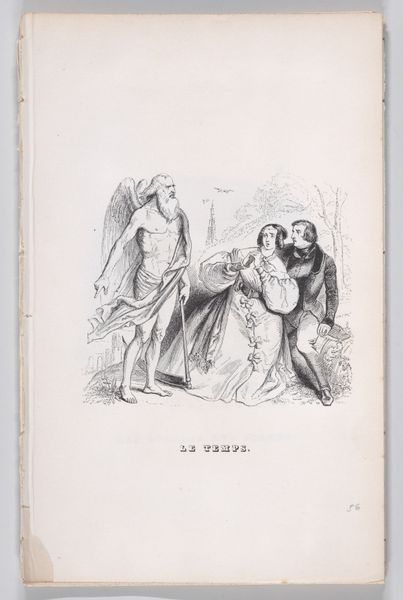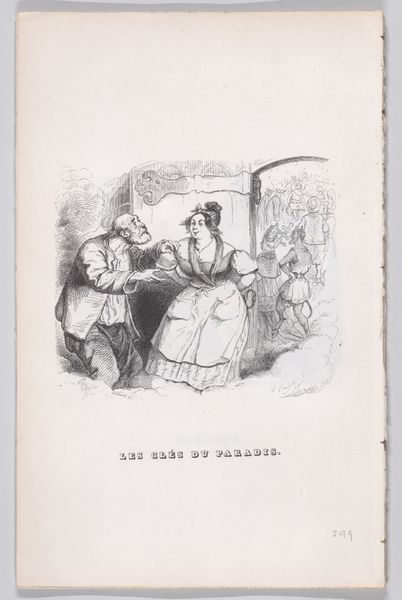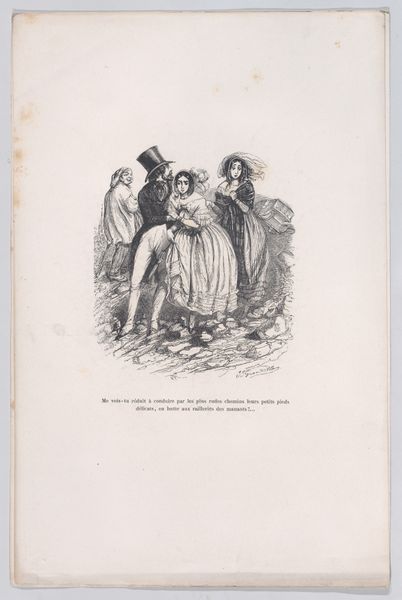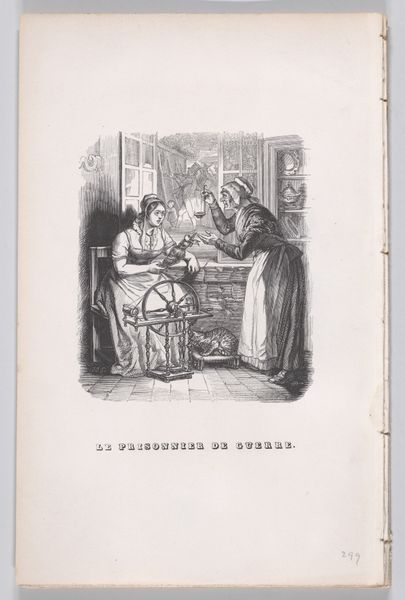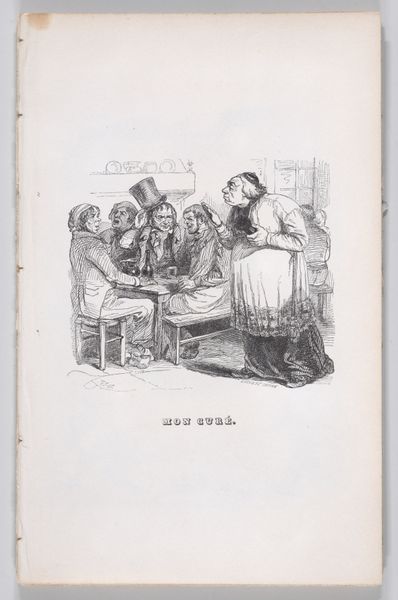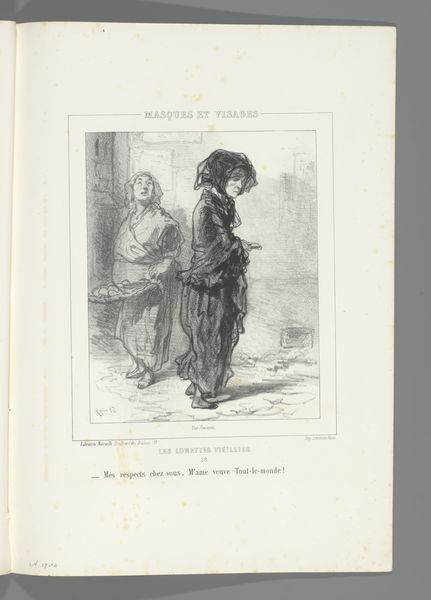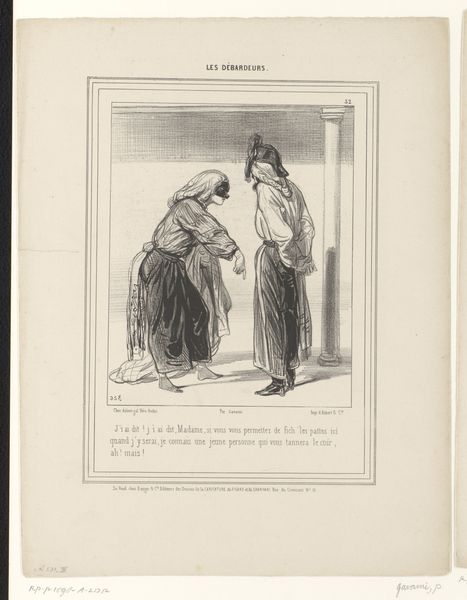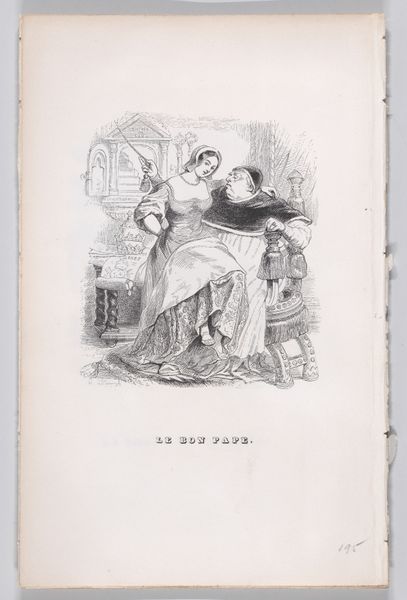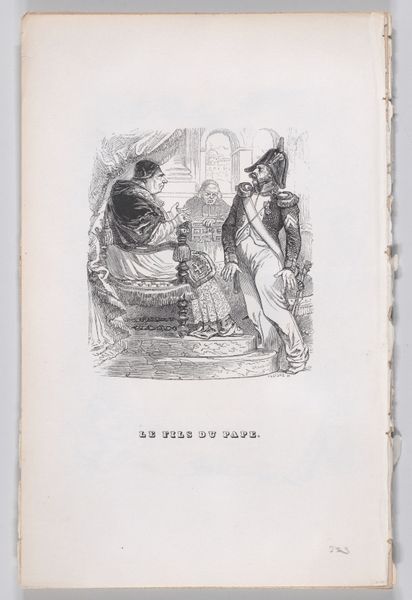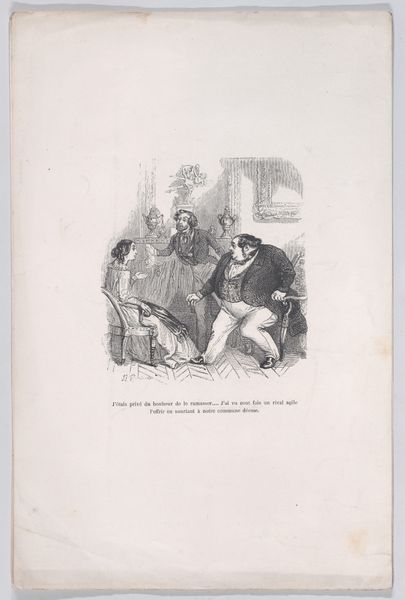
drawing, print, etching, engraving
#
drawing
#
narrative-art
# print
#
etching
#
romanticism
#
genre-painting
#
history-painting
#
engraving
Dimensions: Sheet: 8 5/8 × 5 1/2 in. (21.9 × 14 cm)
Copyright: Public Domain
J. J. Grandville made this lithograph, "Jacques," as part of an illustrated edition of Béranger’s complete works. Lithography allows for nuanced tonal gradations by exploiting the natural repulsion between grease and water. Here, the artist likely drew his composition on a prepared limestone slab using a greasy crayon or ink. The stone would then have been treated with chemicals, allowing ink to adhere only to the drawn areas. By pressing paper against the inked stone, Grandville's design would transfer, creating multiple impressions. Looking closely, the composition reveals a stark class divide: an impoverished family is visited by a pair of well-to-do gentlemen. The artist's focus on the meticulous rendering of details – the texture of the woman’s shawl, the crisp lines of the men’s attire – highlights these social disparities, underscoring themes of labor, capital, and the human condition. Appreciating the process and materials invites us to consider the potent role of the print medium in social commentary during the 19th century.
Comments
No comments
Be the first to comment and join the conversation on the ultimate creative platform.
